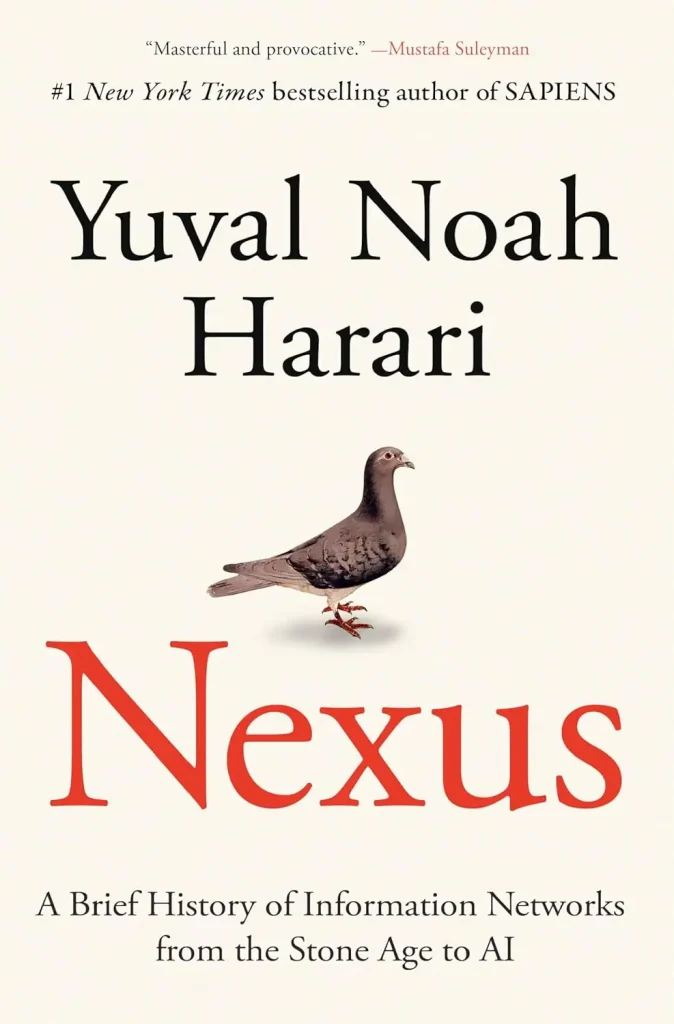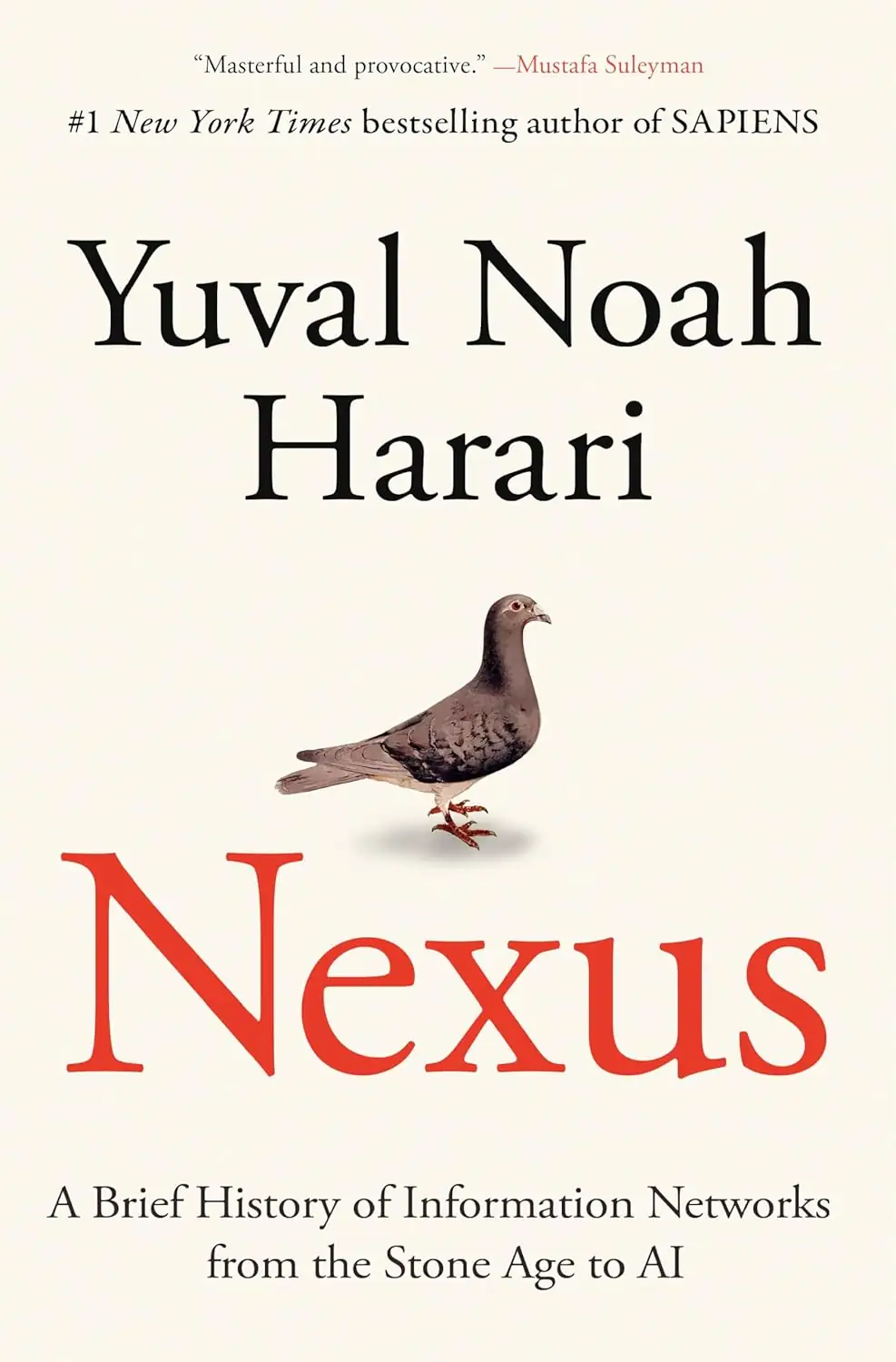Summary of “Nexus” by Yuval Noah Harari
This is a summary generated by Google’s Gemini 2.0 Flash Thinking model. It was given an 833KB transcript based on a Whisper AI Speech to Text of the Audiobook of Nexus.
I couldn’t use Claude, my usual go-to because there was so much content it was beyond the acceptable context window length and it wouldn’t accept the txt file.
I liked the book. I think it was a good addendum to the Dataism section of Homo Deus and it’s especially pertinent to me right now as I’m trying to grapple with what an Abundance Centered Society on Mars would look like and I have a specific Tao of ACeS on Dataism (#6), so this helps round it out. I still need to integrate the ideas of Dataism, Nexus and an Abundance Centered Society.
Book resources:

Summary of Nexus: A Brief History of Information Networks from the Stone Age to AI
Yuval Noah Harari’s “Nexus” delves into the intricate relationship between information networks, power, and the future of humanity in the age of artificial intelligence. The book challenges conventional wisdom about information and explores how our ability to cooperate through shared narratives has shaped our past and will determine our future. Here are some of the crucial concepts explored in “Nexus”:
The Paradox of Power and Wisdom
Harari begins by questioning humanity’s self-proclaimed wisdom despite our immense power. He argues that while we have accumulated unprecedented technological capabilities, we are on the brink of ecological collapse and are developing technologies like AI that could potentially enslave or destroy us. This raises the fundamental question: why are we so good at gaining power but so poor at acquiring the wisdom to wield it responsibly?.
The Power of Fictional Networks
The book posits that human dominance isn’t due to individual brilliance but our unique ability to cooperate in large numbers. This cooperation is primarily achieved through the creation and dissemination of shared fictions, fantasies, and mass delusions – from religious beliefs to national ideologies. These narratives act as the “glue” that binds vast networks of individuals, enabling collective action and the accumulation of power. Examples like Nazism and Stalinism illustrate the immense power that even exceptionally deluded ideas can generate.
Challenging the Naive View of Information
Harari critiques the widely held belief that more information inherently leads to truth and wisdom. While acknowledging instances where increased information has improved our understanding (like the reduction in child mortality due to medical data ), he argues that the sheer volume and speed of information in the modern age haven’t necessarily made us wiser. The rise of misinformation and the potential for AI to manipulate information flows further undermine this optimistic view.
The Rise of Populism and Information as a Weapon
The book examines populism as a powerful force that views information not as a path to truth but as a weapon in a power struggle. Populist movements often attack traditional institutions that claim to possess and disseminate truth, such as the media, scientific bodies, and academic experts, portraying them as self-serving elites spreading disinformation. This erosion of trust in established sources of information poses a significant challenge in an era already saturated with data.
The AI Revolution: A New Kind of Information Network
“Nexus” highlights that the emergence of artificial intelligence represents a fundamentally different kind of information technology. Unlike previous tools, AI can make decisions and generate new ideas independently. This capability transforms AI from a mere tool into an agent, raising profound questions about control, autonomy, and the future of human decision-making. The development of AI could lead to unprecedented advancements but also carries the risk of exacerbating existing conflicts or creating new forms of totalitarian control by non-human intelligence.
The Interplay of Mythology and Bureaucracy
Throughout history, large-scale information networks have relied on both mythmakers (storytellers, ideologues) and bureaucrats (organizers, administrators). Mythmakers create the unifying narratives, while bureaucrats establish the structures and processes to maintain order. The tension and balance between these two forces often define the characteristics and longevity of societies and institutions.
The Importance of Self-Correction
The book emphasizes the crucial role of self-correcting mechanisms, such as independent courts and peer-reviewed journals, in maintaining a degree of truthfulness within information networks. Institutions that lack strong self-correction are prone to errors and can even lead to historical calamities. The development of robust mechanisms for identifying and rectifying mistakes is essential for navigating the complexities of the modern information landscape.
The Looming Silicon Curtain
Harari warns of the potential for a “Silicon Curtain” to divide humanity into rival digital empires or information cocoons. This division could arise from geopolitical competition in the digital realm or from the increasing personalization of information by algorithms, leading to fragmented realities and hindering global cooperation on critical issues like climate change and AI regulation.
The Need for Humility and Institutional Wisdom
Ultimately, “Nexus” argues for a move away from both the naive faith in unlimited information and the populist dismissal of objective truth. The key to navigating the challenges ahead lies in cultivating humility, recognizing our fallibility, and focusing on the hard work of building and maintaining institutions with strong self-correcting mechanisms. This approach, rooted in the principles of trial and error observed in the evolution of life itself, offers a path towards creating wiser information networks capable of addressing the existential threats we face.
By understanding these key concepts from “Nexus,” we can gain a deeper appreciation for the forces shaping our world and the critical choices we must make to ensure a positive future in the age of AI.

